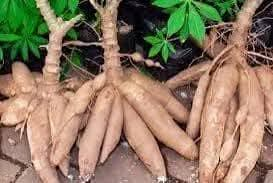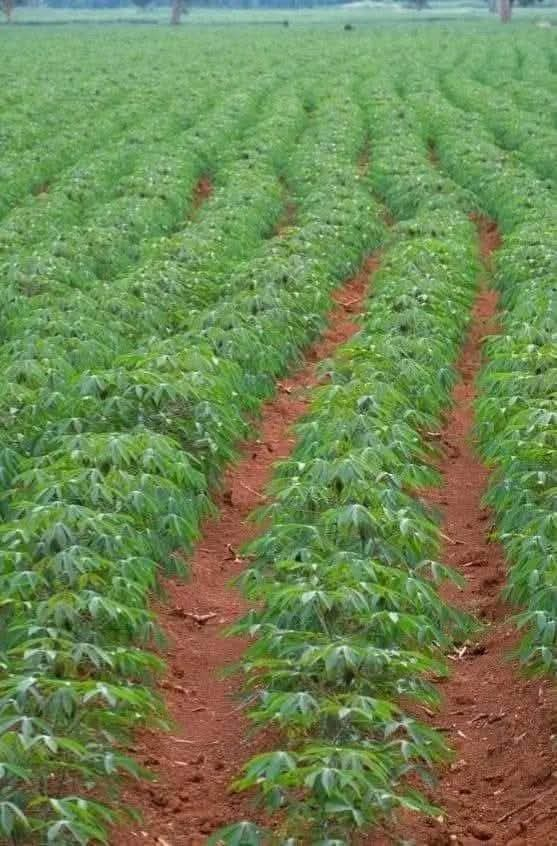As cassava farming continues to offer significant opportunities for youth in agriculture, selecting the right cassava variety is crucial for achieving high yields and quality products. Nigeria, being one of the largest cassava producers in the world, boasts several cassava varieties that cater to different processing needs. In 2025, young entrepreneurs can capitalize on the availability of high-yielding, disease-resistant varieties to maximize their profits in both local and export markets. This article explores eight popular cassava varieties in Nigeria that present promising business opportunities for aspiring farmers.

1. TME 419
TME 419 is one of the most viable cassava varieties in Nigeria, highly favored for its high starch content. This variety is ideal for the production of cassava flour, starch, glucose, and ethanol. When managed properly with good agricultural practices, TME 419 can yield over 45 tons per hectare, making it a highly profitable option for farmers aiming to enter the starch and biofuel markets.
2. Sunshine
Sunshine is another popular cassava variety in Nigeria, particularly known for its suitability in producing traditional products like fufu and garri. It thrives well in a variety of climates and can yield above 30 tons of fresh cassava tubers per hectare. Its popularity and versatility make it an excellent choice for youth farmers seeking to engage in food processing businesses.
3. Game Changer
Developed by the International Institute of Tropical Agriculture (IITA) and the National Root Crops Research Institute (NRCRI), Game Changer is a prolific variety known for its ability to produce over 35 tons per hectare when well-managed. This variety is especially useful for starch and ethanol production, offering young farmers a chance to tap into the growing demand for biofuels and industrial products.
4. Hope
Hope, another variety developed by IITA and NRCRI, is noted for its high yield potential. With good agricultural practices, it can yield over 30 tons per hectare. This variety is ideal for the production of starch and ethanol, providing youth with the opportunity to diversify their agribusiness ventures into industrial applications.
5. Obasanjo-2
Obasanjo-2 is a highly productive cassava variety that can yield up to 40 tons per hectare, especially with the use of irrigation techniques. It is widely used for producing garri and fufu, making it an excellent choice for farmers focusing on food processing. Its high yield potential makes it a strong contender for anyone looking to scale their cassava farming business.
6. Baba 70
Baba 70 is a cassava variety known for its high starch content, making it ideal for processing into cassava flour, starch, glucose, and ethanol. With proper agronomic practices, it can yield over 30 tons per hectare. This variety is especially beneficial for young entrepreneurs seeking to explore the biofuel and food production industries.
7. Poundable
The Poundable cassava variety is widely cultivated in Nigeria due to its high starch content and its suitability for producing a range of products, including cassava flour, starch, glucose, ethanol, fufu, and garri. It can yield over 30 tons per hectare with the right care and management. This variety offers a versatile option for youth in both the food processing and industrial sectors.
8. TMS 1368
TMS 1368 is a yellow cassava variety that is rich in Vitamin A, earning it the nickname “Vitamin A cassava.” It is commonly used in the production of garri and fufu and offers nutritional benefits. This variety is especially beneficial for food security and health-conscious consumers, making it an ideal choice for young farmers interested in value-added products.
Choosing the right cassava variety is crucial for maximizing yields and profitability in cassava farming. For youth entrepreneurs in Nigeria, the varieties listed above offer excellent opportunities for growth in both food and industrial markets. By focusing on high-yielding and versatile varieties, young farmers can expand their businesses and contribute to Nigeria’s agricultural development in 2025 and beyond. With the right knowledge and resources, these cassava varieties can help unlock profitable opportunities in the growing agricultural sector.

